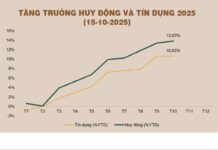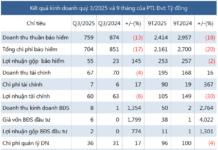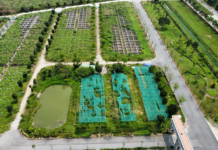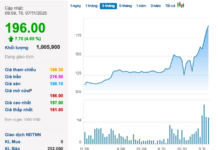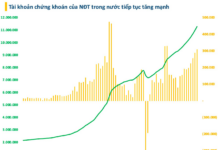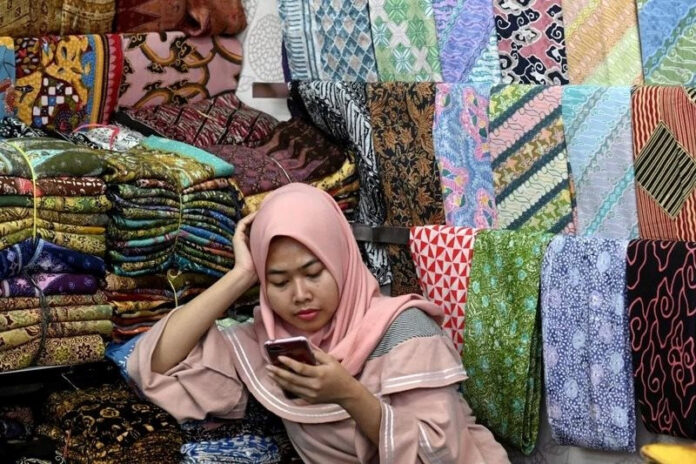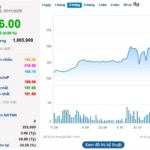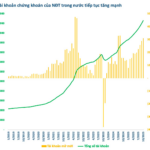Devita Ariyanti has been selling headscarves for the past four years at a small shop in Indonesia’s Yogyakarta city. Her biggest challenge used to be delayed shipments. Now, she faces a more present threat: cheap headscarves imported via e-commerce platforms like Shopee, Lazada, and TikTok Shop.
Devita sources her products from wholesale markets in the city, known for its traditional handicrafts. The headscarves range in price from 150,000 rupiah ($9) to 400,000 rupiah ($25), significantly more expensive than the cheap headscarves sold online.
“Fortunately, I have loyal customers,” the 43-year-old entrepreneur told Rest of World. “But I have to admit that it’s hard to compete with the low-priced imports sold online. So, if the government wants to help us [by increasing import taxes], that would be great,” she says.
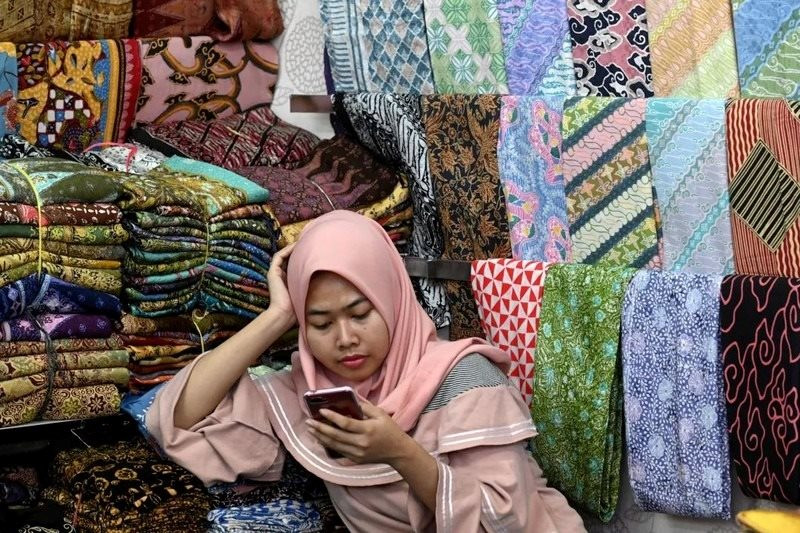
The Indonesian government says it wants to protect businesses like Devita’s, with plans to impose import taxes of up to 200% on various goods, including textiles, clothing, footwear, cosmetics, and electronics. These measures primarily target imports from China, which have surged in recent years as e-commerce platforms gained popularity.
“If the market is flooded with imports, our micro, small, and medium enterprises could collapse,” said Zulkifli Hasan, Indonesia’s Minister of Trade, in a press conference in July. According to the country’s data, these enterprises account for about 60% of the nation’s gross domestic product and employ approximately 120 million workers.
Indonesia is Southeast Asia’s largest e-commerce market, according to consulting firm Momentum Works. The country’s e-commerce sales value reached $77 billion in 2023. In comparison, Vietnam’s e-commerce market value in 2023 was approximately $20.5 billion.
Imports from China currently enjoy low or zero taxes due to regional trade agreements. However, as online sales of cheap clothing, footwear, and electronics soared, the government stepped in to protect local businesses.
President Joko Widodo has repeatedly expressed concern about low-cost Chinese-made goods and encouraged users to limit their use of imported products. The nation has imposed stringent restrictions on cross-border e-commerce.
They set a minimum threshold—the point below which goods are exempt from import taxes—at $100, then lowered it to $75, and now it stands at $3. The authorities also banned social media shopping last year, forcing TikTok Shop to shut down. However, the platform resumed operations after about two months.
Across Southeast Asia, some governments have also opted to increase taxes and ban certain items. Malaysia imposes a 10% sales tax on imports valued below $106, while the Philippines applies a 1% withholding tax on online merchants.
In Thailand, the entry of the Chinese e-commerce company Temu has sparked calls for higher taxes on imported goods. Simon Torring, co-founder of the research firm Cube Asia, told Rest of World that there could be more taxes and restrictions on e-commerce companies.
“Indonesia is the first country to take real action, and local companies in other countries are also pressuring their governments to act,” he said.
Bhima Yudhistira, Director of the Center for Economic and Law Studies, said that the government’s plan to impose higher tax rates would benefit local industries but warned that it could also lead to tensions between nations.
In Tanah Abang, Jakarta’s largest textile market in Southeast Asia, many businesses have closed down because they couldn’t compete with cheap imports. Others simply switched to selling imported goods to stay afloat.
However, high import taxes do not deter the flow of illegal imports through the hundreds of unmanaged ports across the country’s islands. “We don’t prohibit imports,” said Wisnu, a member of the task force on illegal imports at Indonesia’s Ministry of Trade. “But the government clearly categorizes which goods should and should not be imported. Whether we like it or not, we are still dependent on raw materials from abroad, and some products cannot be produced domestically.”
Source: Rest of World
Lucky Shipper Wins Big During Lunar New Year
In the days leading up to Tet holiday, the amount of online shopping has significantly increased, with delivery personnel being busy on every route in Hanoi. According to an e-commerce expert, online shopping during this Tet holiday has seen a remarkable surge and is expected to continue rising in the coming period.
Retail market recovery in 2024: How far will it go?
There is a need for collaboration among various levels and sectors to boost retail demand and contribute to economic development.






